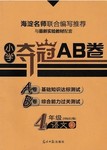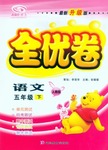题目内容
My father, who is strict ___ his work, is quite strict ___ me.
A. with; in B. in; with
C. in; in D. with; with
B
【解析】
试题分析:句意:我的父亲严格对待工作同时对我也是严格要求。be strict in 后面加的是事物 比如: 对考试严格对待:be strict in the exam 而be strict with 后面加的是人 比如:对优秀学生严格对待: be strict with excellent students,故选B。
考点:考查介词的用法。

练习册系列答案
 小学夺冠AB卷系列答案
小学夺冠AB卷系列答案 ABC考王全优卷系列答案
ABC考王全优卷系列答案
相关题目